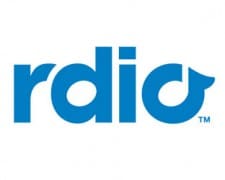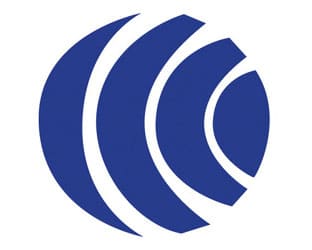 Cumulus Media, which operates 525 radio stations, is announcing a deal with Rdio, a subscription music service from the founders of Skype, that will give Cumulus an online outlet and help Rdio compete against more established players like Spotify. In exchange for what it calls a significant equity stake in Rdio’s parent company, Pulser Media, Cumulus will give Rdio broad access to its programming and promote Rdio on its stations. Rdio will have the ability to use chunks of Cumulus programming and promos on its own streams. In return, Cumulus will sell ads for Rdio’s new free service and compile playlists for the new service. The deal between Rdio and Cumulus is a trade, with no cash changing hands. Further terms were not disclosed, but the value of Cumulus’s content and services is estimated at more than $100 million. Specifically, Rdio says will leverage the Cumulus sales infrastructure to monetize its upcoming ad-supported free products, including music on-demand, custom playlists and exclusive content curated by Cumulus.
Cumulus Media, which operates 525 radio stations, is announcing a deal with Rdio, a subscription music service from the founders of Skype, that will give Cumulus an online outlet and help Rdio compete against more established players like Spotify. In exchange for what it calls a significant equity stake in Rdio’s parent company, Pulser Media, Cumulus will give Rdio broad access to its programming and promote Rdio on its stations. Rdio will have the ability to use chunks of Cumulus programming and promos on its own streams. In return, Cumulus will sell ads for Rdio’s new free service and compile playlists for the new service. The deal between Rdio and Cumulus is a trade, with no cash changing hands. Further terms were not disclosed, but the value of Cumulus’s content and services is estimated at more than $100 million. Specifically, Rdio says will leverage the Cumulus sales infrastructure to monetize its upcoming ad-supported free products, including music on-demand, custom playlists and exclusive content curated by Cumulus.
“This is our digital play,” Lew Dickey, Cumulus CEO, told the NY Times in a joint interview on Friday with Rdio’s chief, Drew Larner.
Cumulus will also sell advertising for a free version of the service in the US. Rdio, which launched in 2010 and costs $5 to $10 a month, is available in 31 markets around the world. It lets subscribers listen to millions of songs, build playlists and interact with other users. Subscribers have instant access to listen to any song they please. Cumulus will draw on its stations and syndicated shows to create playlists and other programs for Rdio users, stripping out localized details like traffic and weather.
That kind of content could give Rdio an edge against other services. But even more important is its ability to offer a free, ad-supported version to compete directly against Spotify. Cumulus will use its 1,500 AEs around the country to sell inventory for Rdio’s free version, which is expected by the end of the year, and the companies will share ad revenue.
“This partnership leverages our premier broadcast and content assets along with Rdio’s acclaimed digital audio platform — enabling consumers to listen to whatever they want, whenever they want, however they want,” said Dickey in a release.
“We are thrilled to be partnering with Cumulus and their robust network of radio stations and premium content,” adds Larner. “This monumental deal is the first time a digital and a broadcast platform have come together in this way and we’re eager to bring the Rdio experience to the greater Cumulus listening audience.”
The Times says Rdio, because of recent studies of its popularity in Google searches suggest it is faring well against other competitors like Rhapsody, Slacker and Mog.
Cumulus already supplies streams of its stations to Clear Channel’s iHeartRadio app, a deal that should continue through at least next year. But Dickey called that arrangement “a marriage of convenience” and said that the Rdio deal allowed it to do much more.
“We’re trying to be much more active in the audio ecosystem than just passively handing our streams over,” Dickey told The Times. “That has severe limitations in terms of our ability to monetize.”
Dickey tells RBR-TVBR: “For over a generation, people have been listening to the radio, buying music and making custom tapes/CD’s. Today, people continue listen to the radio in record numbers, use iTunes to buy their music and use Pandora to make their mix tapes. Rdio is a unique offering that offers an on-demand library as large as iTunes and a custom playlist service that’s superior to Pandora. In addition, we will
create national channels based upon our iconic brands like KFOG, Nash, WPLJ and KLOS. It will be a compelling one-stop digital audio experience that will complement local broadcast radio which accounts for two-thirds of audio consumption. This enables us to leverage our content and sales infrastructure to play across the broad audio ecosystem. Pandora and Spotify together are valued at over $9b so it’s wise to leverage our core assets into a meaningful position in the digital audio space.”
RBR-TVBR observation: This may save Rdio. It’s great for its initial free time period of a month or so, but after that the service is dead unless you pay. Never went back. Having it available for free may bring people back and add more–especially with the combined loudspeaker of the Cumulus radio stations. The fact that Cumulus has a strong digital component now to sell in the marketplace should help the bottom line for both companies. The Clear Channel/iHeartRadio deal with Cumulus will likely be dead after the contract is over, but you never know–with digital, the more platforms you’re on, sometimes the better. Nevertheless, Cumulus will put its stations on the Rdio app. The only fear on these kinds of deals is the more you hype an internet music service on your radio stations, the more they leave and may not come back all that much. This time, though the content goes both ways.





